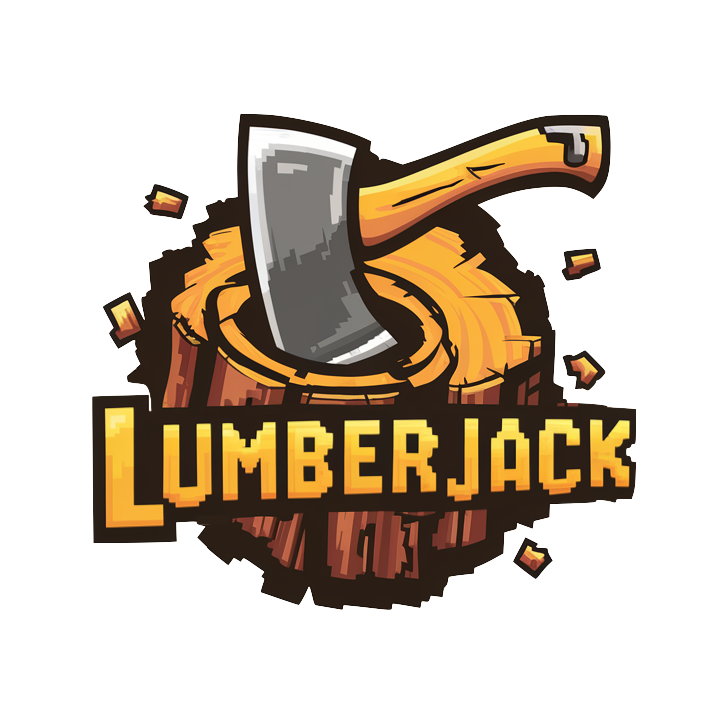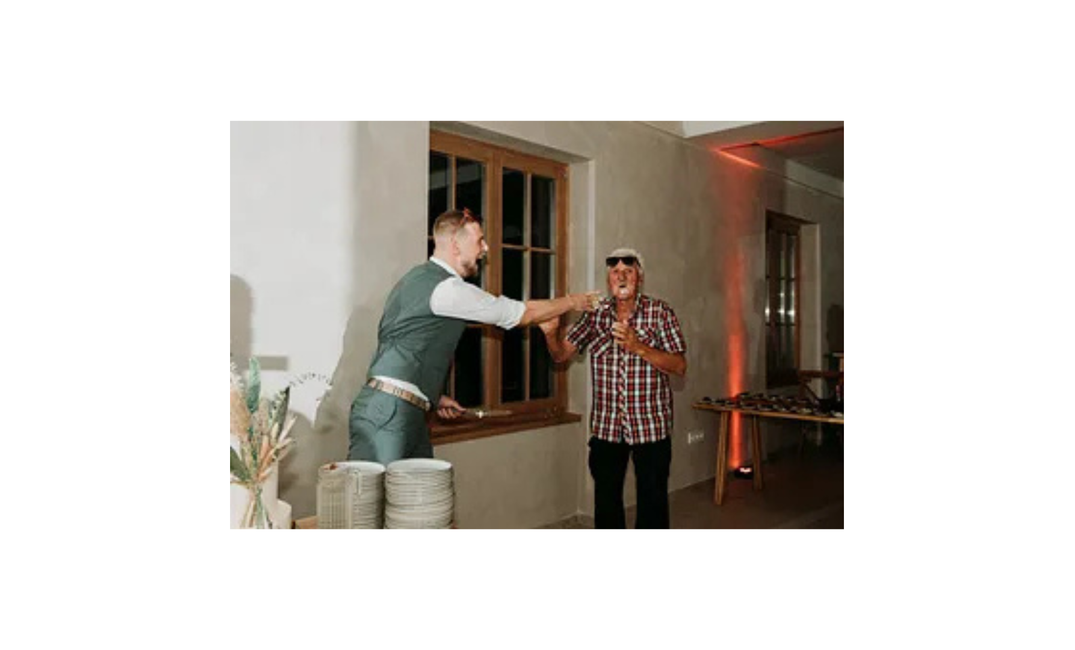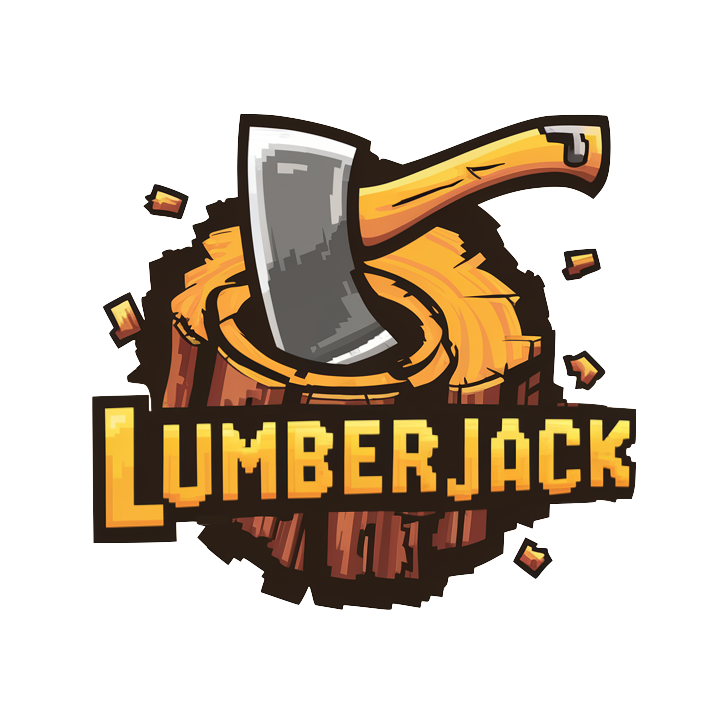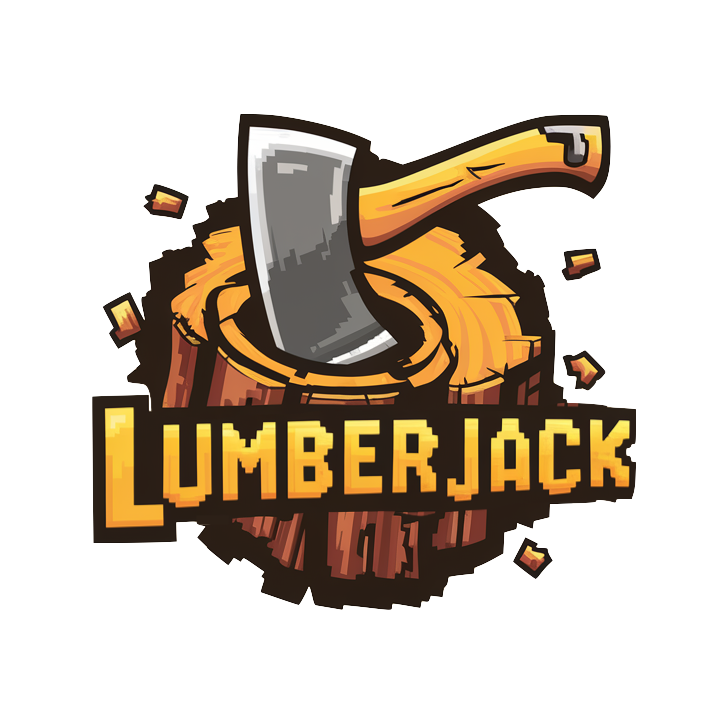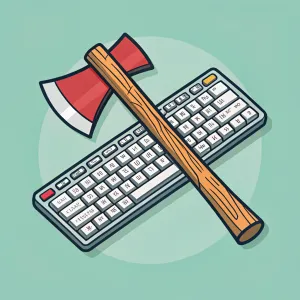I grew up in a blue-collar family. My grandparents were masons, seamstresses, nurses. Everyone in our family had the same philosophy: there are no cheat codes, and no shortcuts in life. Everything is hard and things are more impossible than possible.
You are always under-resourced, and always short on time.
Scarcity is how people like us live.
Except my grandfather.
He always found a way to get what he wanted — if not the actual thing, then a good enough substitute. For him, the impossible didn’t exist.
He would first decide he wanted something and then figure out a way to make it happen.
Everyone in our family called him Tata.
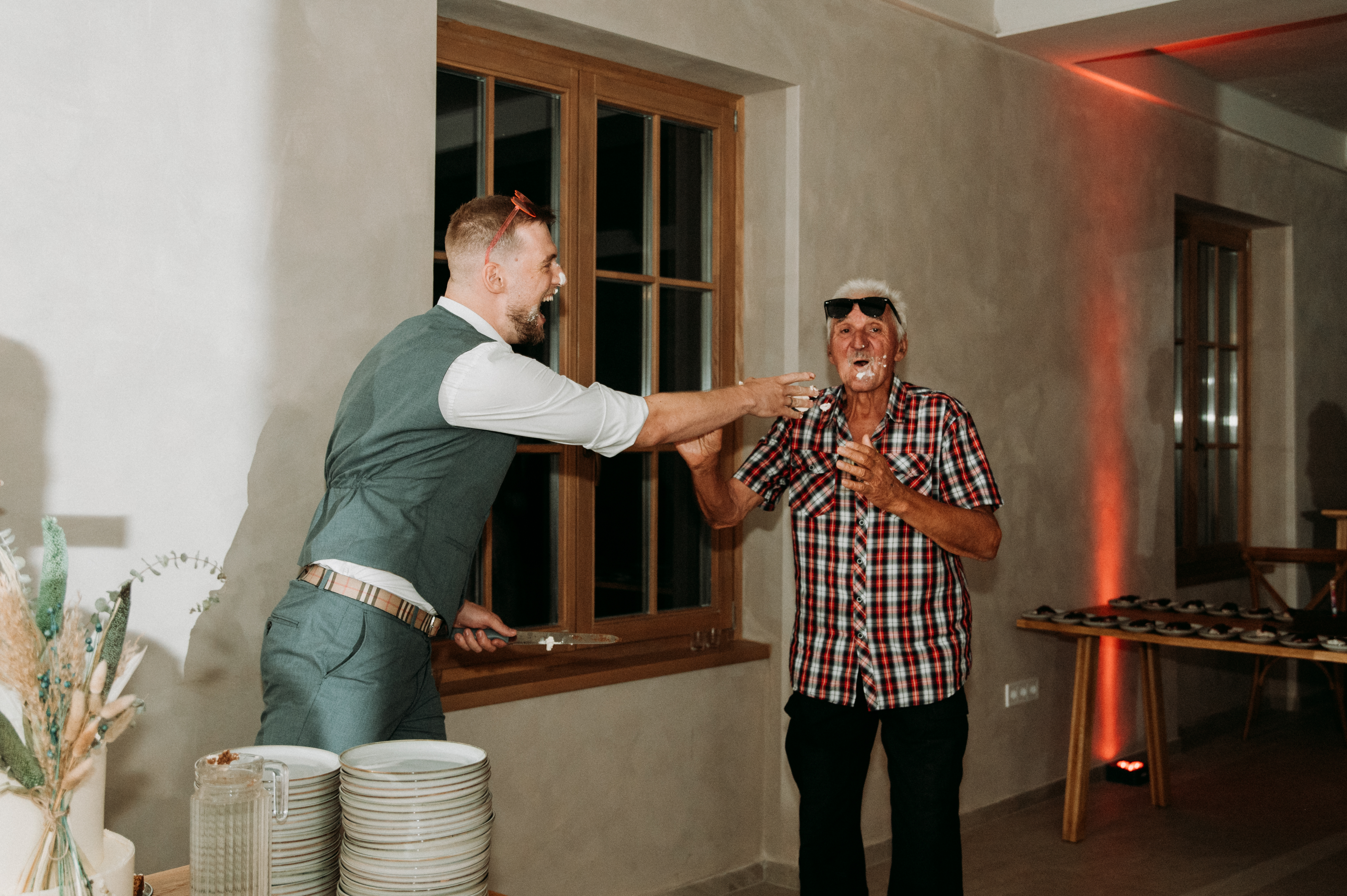
He was the most resourceful man I have ever known. He taught me how to fish, train dogs, carve wood, build a firepit, pitch a tent, and many other things.
He always had this simple approach to life:
“Anything is possible if you can find a good enough substitute”.
Because of this simple mindset, Tata was the richest man with an empty wallet.
Bacon and the Masonry Pan
When I was a kid, I spent every summer with my grandparents. They had a small lakeside cottage in a region called Danzug. I still remember the crisp touch of grass under my feet during a scorching August afternoon and the sound of the DIY bite alarm that went off in the house in the middle of the night.
Danzug was heavily infested with mosquitoes so Tata would build extensive defenses against them. Often we’d wake up to the annoying, high-pitched buzzing noise that mosquitoes make. I remember how Tata had an old pillow he only used to hunt them down in the middle of the night.

We had a lot of stories from Danzug. But there was one particular story that he loved to tell every time he had the chance. Everyone in the family heard this a hundred times so I think it’s fair to say this was one of his favorite memories.
This happened sometime in the mid-90s.
Even though the pier was only a few minutes walk from the house, Tata would pitch a tent there for the two of us, so we could sleep by the fishing rods at night. I loved it because it felt like we were on an adventure.
One morning I woke up to the screeching noise of Tata’s bite alarm. I didn’t bother, thinking he was there to catch whatever that was. However, even after a few minutes, the bite alarm was still going off. I crawled out of the tent only to see two abandoned fishing rods and Tata’s boat missing.
He was gone, fishing somewhere in the middle of the lake.
Something had to be done and I didn’t have a choice.
So 4-year-old David decided it was time to catch his first big fish.
The details are a bit hazy, it’s been almost 30 years.
I remember reeling in a roughly 4kg carp, then frantically shouting, asking for my grandma to come help me. It was a mighty catch, especially for a 4-year-old.
Grandma went back to the house and I stayed there by the tent, waiting for Tata to come home.
About an hour later he arrived, only to find his grandson sitting by the rods and nonchalantly eating a freshly roasted slice of bacon with some dirty bread.
In Hungary, roasting bacon over an open fire is a long-standing tradition. People gather around a fire, and skewer thick slices of bacon, slowly cooking them while dripping the fat over bread and vegetables, making “dirty bread”. We call this “szalonnasütés”, which translates to roasting bacon.
It’s similar to roasting marshmallows, but with bacon. Yeah, it’s that good.

“What are you eating David?“ - Tata asked me with curiosity mixed with some worry in his voice.
”Dirty bread” - I said.
”Did grandma make it for you?” - Tata was very surprised. Szalonnasütés was a social activity, so there’s no way Grandma wouldn’t want to wait until he was home so we could do it together. And we definitely wouldn’t do it during the day, since it was reckless to make a big fire while the sun was up during the dry season.
”No, I did it.” - I said, mouth full of food, while pointing towards a nearby tree.
Tata walked over to the tree, where he found a small masonry pan with still some ember in it.
He would tell this story over and over again, even decades later explaining what I’ve done:
“He decided he wanted to eat bacon so he took my masonry pan, made a fire, cut a slice of bacon, put it on a makeshift skewer, and roasted it slowly over the pan. He did it where the ground was wet to avoid a fire accident. The boy was hungry so he made food. It was the most perfect roasted bacon I’ve ever seen.”
Every time he told this story, his eyes would light up and you could tell he was immensely proud. One day I asked him why this story mattered to him so much. He explained:
“Because you showed great resourcefulness. In that moment I knew you learned the lesson I’ve been trying to teach you. You couldn’t have a szalonnasütés with me and your grandmother. You found a good enough substitute and made it happen. Right there I knew you learned the most important lesson I could teach you.“
The Lumberjack Method
Tata and his “good enough substitute” philosophy had evidence all over his home. He built everything with his bare hands. He was an avid DIY practitioner before DIY was even a thing.
This made him the richest man with an empty wallet.
When I wanted a swing, he built a swing.
When the dog needed a playground, he built a playground.
When he decided that he wanted rabbits, he built a rabbit hutch in one afternoon.
I remember discussing how Tata doesn’t buy things because he can build anything he wants. I remember that most people in our family were smiling at this because the production quality was never done to a professional level.
His creations were always a bit of a patchwork. A bit ugly, but functional.
Doing things this way, we had this term for this kind of DIY work: “favágó módszer”, which translates to “lumberjack method”.
As I understand, it’s called this way because when you look at the end result, it looks like a carpenter’s job was done by a lumberjack. Instead of fine, precision work, and smooth finish, you’d get rough, maybe even ugly results. The kind you’d get if you used an axe instead of a miter saw.
However, Tata’s creations stood the test of time. You’d never find them on a Pinterest mood board, but even 10-20 years after he built them, they’re still there, doing their job every day.
This is how my Tata approached yardwork.
He taught me that you can always find a way to do things with what you have if you’re willing to look for a good enough substitute. The end result won’t be perfect, it will be a bit favágó, but it’ll get the job done.
Digital Yardwork
Now you understand why my blog is called the Lumberjack.
I’m carrying Tata’s legacy with me.
Not just in our yard, where I build my DIY projects as there’s a lot of work our new house needs. I also follow his principles in our digital lives.
I remember the times when searching for answers meant a dangerous journey to AltaVista. I remember the vibrant community around DC++. I remember our first computer, which had a Pentium 60Mhz processor. I remember putting together my first computer network when I was 11 years old. I was going through trial and error because the book on computer networks in the library wasn’t available.
Today we live wearing golden handcuffs. We don’t own software anymore, we just pay for a million subscriptions. We don’t have control over our data, or our lives and if we want something that our current app cannot do, we start shopping instead of building.
If you’ve been reading my blog, you know that I believe we’re moving towards single-use code.
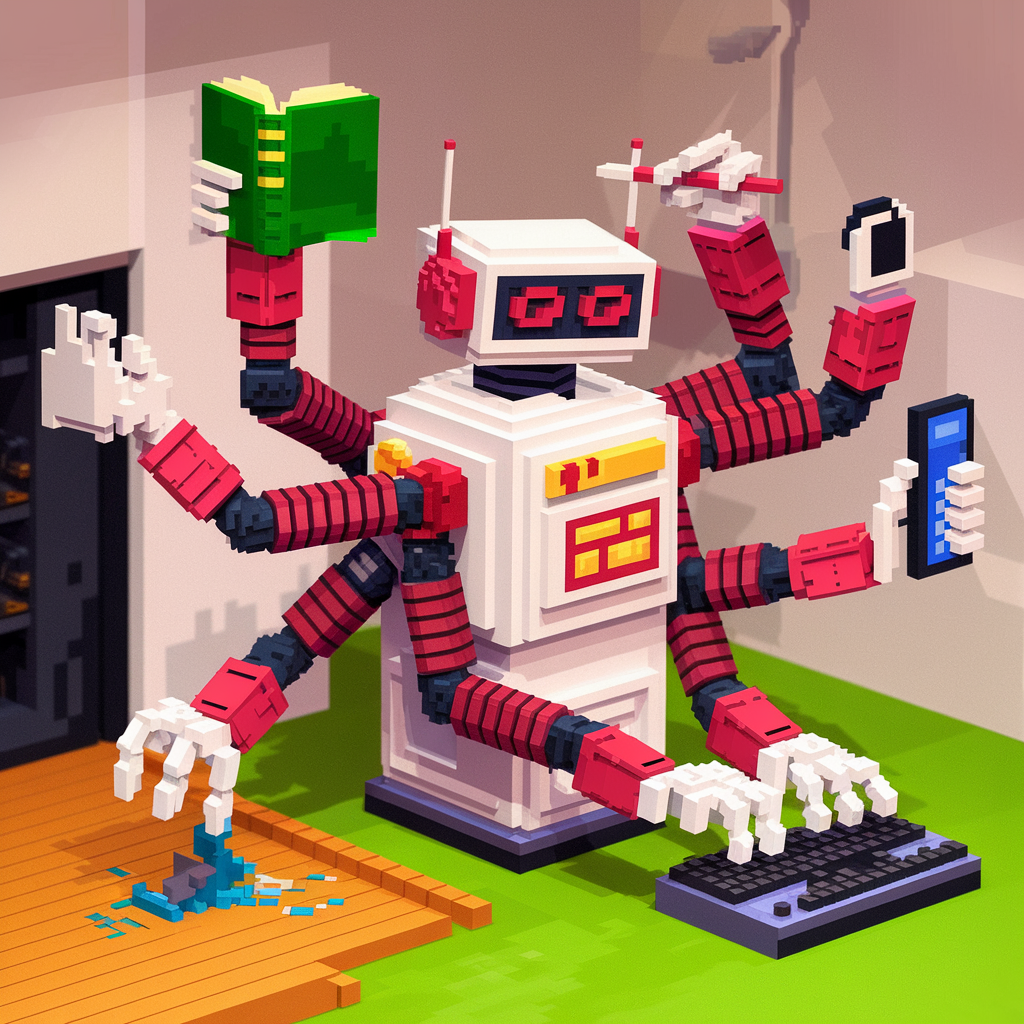
The cost of creating new software is plummeting, which means that you don’t have to put up with whatever the incumbent tech startups allow you to do anymore.
In the meantime, humans are losing agency to computers, so the only way to counter that is to own the software.
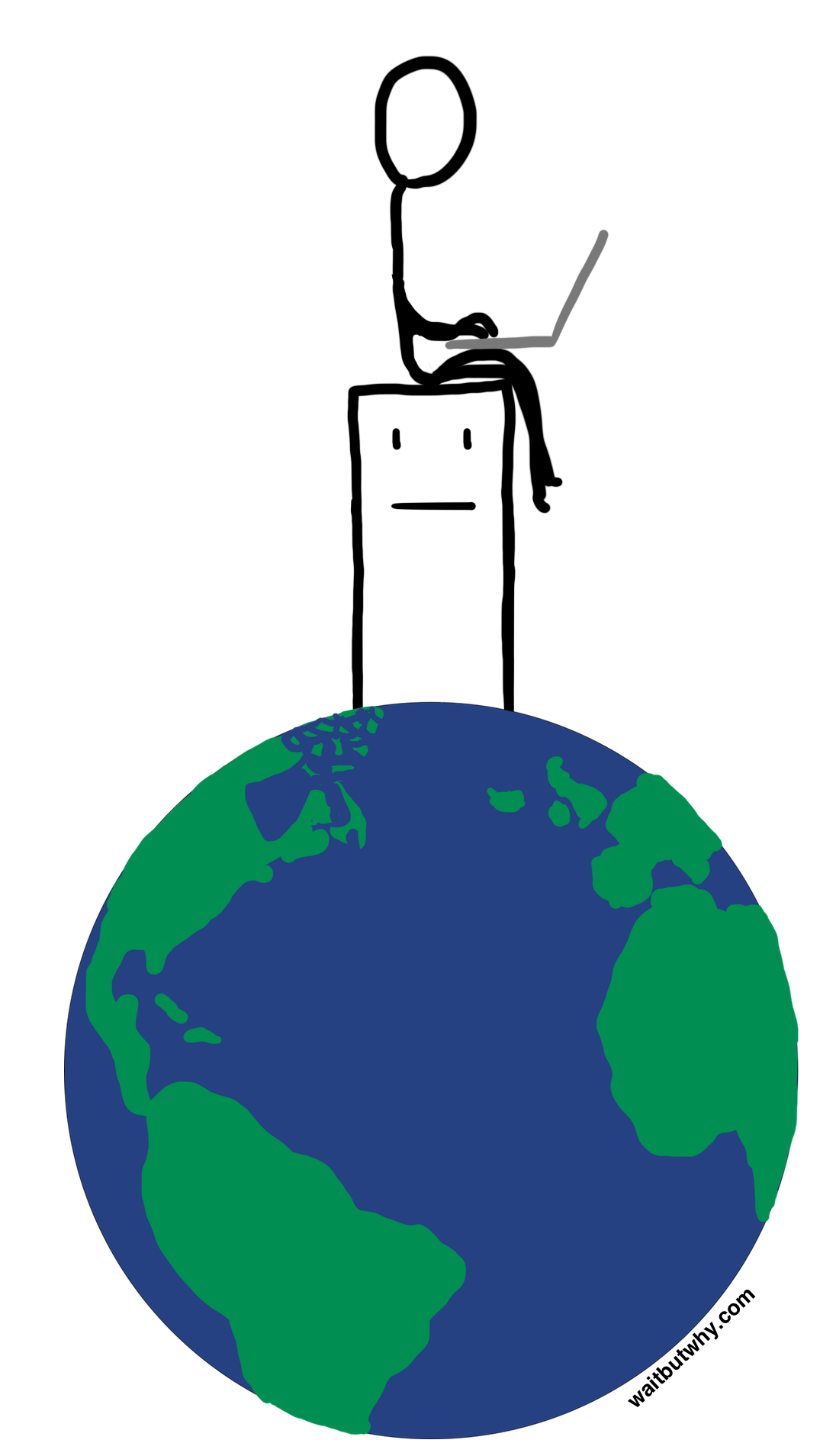
I can see this in the open-source communities, the indie hacker communities, and the Raspberry Pi and Arduino communities.
Last week I had lunch with my friend Gabor Gonczy, who is the founder and CEO of Stylers Group. He showed me how he has a full home automation smart system set up as his family’s homebase. It gives him full control over his own family’s IT infrastructure instead of being exposed to monthly payments to whatever service provider.
The DIY movement is coming for software and I’m here for it.
Indie makers doing digital yardwork.
AI is the Great Equalizer
But there’s one problem with all of these communities. They’re all very technical. The learning curve is incredibly steep. You need to learn a lot about computer science before you can make things work for you.
I see many people get sucked in by a project they’ve been meaning to do for ages, only to end up enrolling in Python courses.
Sure, it’s a great way to learn, but do you need to learn everything to build things?
AI is the great equalizer here.
Unlocking the latent expertise of LLMs allows us to flatten these learning curves by orders of magnitude.
This allows a new generation of makers to build and create new things. People who are not overly technical. Not necessarily engineers or coders.
Ordinary people who just want to build things for themselves, for their families, for their businesses.
Not as good as a well-funded SaaS platform, but you could say it’s a good enough substitute.
Good Enough Substitute
If Tata was around as a millennial, he’d go into his workshop, put his iPhone into his bench vise, and figure out how to bend it to its will.
Just as he provided for his family with his resourcefulness, I’m doing the same to mine, but in the digital world.
Instead of a bench vise, my workshop’s focal point is my computer.
Because it’s not enough to know your way around fixing appliances and tending to plants anymore. You also need to know your way around APIs and handle data expertly.
So one day when my kids come to me asking for a playground I can build one for them, just like my grandfather did before me.
But when my kid wants to play a video game about their own imaginary fantasy story, I can build that for them too.
Most of my problems — and most of my clients’ problems are like this. A good enough substitute is perfect. It’s fast, efficient, and gets the job done.
This is the only way to be present in their lives.
Kids today will grow up to be digital natives in ways we cannot yet imagine. Our job is to prepare for this and be ready. Be capable. Be competent.
The world is changing fast so we need to change too.
And just like my grandfather did to me, I can also teach my kids that anything is possible. Inside a computer or outside of it.
On the Lumberjack I share my thoughts about technology and stuff I build for myself and my family. Sometimes, clients hire me because they realize they don’t need a development team to build something that just works. I try to share most of that too.
If you’re a developer and think “No-code is stupid, it locks you in and AI writes shit code anyway”, then this blog is not for you.
Most of the small businesses and families do not code and don’t have access to programming knowledge. It’s sad because most of the problems small businesses and families face can be solved with coding.
But 95% of the same problems can be solved without coding.
If there is an urgent problem that needs solving, coding will get you the perfect solution, even if it’s needlessly over-engineered.
But using no-code and AI you can get a good enough substitute.
Rest in peace, Tata.
Thank you for making me the man I am today.

